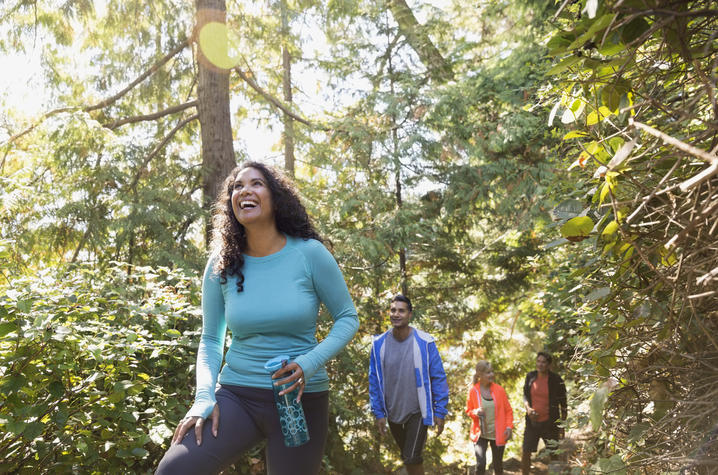Stay safe while hiking this summer

The University of Kentucky Public Relations and Strategic Communications Office provides a weekly health column available for use and reprint by news media. This week's column is by Jonathan Bronner, M.D., associate professor of emergency medicine at the University of Kentucky.
LEXINGTON, Ky. (April 17, 2023) — We are almost at that time of the year where everyone decides that they want to go outside and experience the warmer weather. Hiking is a very popular activity that many people enjoy, especially when springtime rolls around. It can also be a dangerous activity if the necessary precautions are not taken. You want to keep yourself safe on the hiking trail, in addition to keeping the ones around you safe. Here are some helpful safety tips that can make your hiking trip as enjoyable as possible.
Have a plan: Tell someone where you are going and when you plan on returning. Bring a map of the area, as cell phone service can be limited on many trails. Some cell phone apps allow for GPS navigation without cell phone service, but you should remember to pack an extra battery supply.
If you can, use the buddy system: Hiking with a friend or family member can make the experience even more fun. It is always safer to have somebody with you.
Do not walk off trail: The trail is a designated path for a reason. Walking off into areas outside of the trail can be dangerous. Aside from potentially dangerous terrain, staying on trail avoids private property and areas designated for ecological protection.
Have plenty of drinking water: It is recommended that you drink a minimum of one quart every two hours. Water purifiers can be helpful for refilling if you will be on the trail an extended period of time.
Do not touch or feed wildlife: If you encounter wildlife on the trail, keep your distance, back away slowly and do not run. Most animals are not aggressive and will not interact with you unless threatened.
Wear quality footwear and clothing: Injury can be prevented by wearing shoes that are sturdy and comfortable. Dressing and packing for anticipated extremes of weather can further avoid emergencies in the wilderness.
Create an emergency plan: It is extremely important to know what to do in case of an emergency, such as your hiking partner getting lost or injured. Learning CPR and basic wilderness first aid can be beneficial as well.
We all want to keep ourselves and our loved ones safe when enjoying the great outdoors. In addition to these tips, more hiking safety information from the U.S. National Park Service can be found here.




